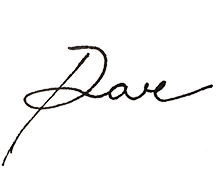In the part of the world in which I live, we are journeying further and further into a season that calls for rest, reprieve, reflection, slowness, and inward excavation.
The tree leaves in Southern New England have all transitioned from their summer greens to a cascade of reds, oranges, and yellows, and have fallen. The daylight hours are nearly at their shortest; nights, nearly their longest. Temperatures are cooler by the week, and winter is coming.
Even if the season outside your window is not exactly like that outside my own, the end of the traditional calendar year also calls forth a season of inward focus, introspection, and reflection: we take stock in what our year has held, and what we have done, and question how we would like to live in the New Year.
On top of it all, in this year of years, another wave of global lockdowns — or “pauses,” or “freezes,” as some savvy politicians are storying them — is happening in response to the ongoing and poorly managed pandemic. As such, we are called back into our homes, and into ourselves, again.
I want to remind you that this time provides an opportunity to learn from stillness.
Whether it is the weather of late autumn upon you, or the start of a reflective holiday season, or a time of inventory at the end of your calendar year, or an actual lockdown driving you back indoors, this is not a time to try to “do” more to “get ahead.”
I’ve heard that story before.
Why We Try to “Get Ahead”
At the onset of the pandemic back in March and April, I heard a common refrain from a lot of folks on the radio, online, and even in some of my coaching clients.
The story was that they wanted to “use this time” to “get ahead.”
The idea was that the lockdown provided some chance opportunity to “do things” that they might “otherwise not do.”
Under the guise of extraordinary circumstances — including events that would push us into our homes, working from the couch, and with seemingly little else to do — the first wave of global lockdowns seemed to provide an earnest opportunity to “do the things we said we would have done by now.”
But as the weeks and months unfolded, here’s what I consistently witnessed:
— Folks who told themselves that this was a time to “get ahead” and “do more” so that they could emerge from lockdown “further ahead” than they would have been actually created less, felt more dissonant, and struggled to recognize their true priorities for months
— Folks who received the time as an opportunity for stillness and reflection found greater clarity, were able to refine their personal practices and professional pursuits, and consistently created new work with significant results
In 2020, I had coaching clients write whole short stories (for the first time in their lives), launch multiple new coaching programs, publish their first collections of poems and first nonfiction books, transition in their professional careers, and even start new businesses.
The common theme is that those who accomplished so much found the path of right and true action from stillness, rest, reprieve, and patience.
Through great discipline, personal faith, and the cultivation of self-knowledge, they actively allowed clarity to find them.
The folks who I saw struggle this year were those who bit off too much, tried to “get ahead,” and thought they could “take advantage” of the time they were given to “do more and more.”
This story is a familiar one — and we’ve all told it at some point, including me. But it’s not a story of opportunism or ambition.
This is a story of neurosis.
It is a story of self-induced pressure to perform, and it’s fueled by pronounced fears and guilt and shame, egged on by absurd social expectations and self-comparison syndrome for “not having done more by now.”
The “do more” mentality is rarely motivated by genuine desire or heart-aligned wanting: the forces that authentically move our lives, and our sense of purpose, in the direction of our ultimate self-realization.
The “do more” story is one that is not made by our own self-direction but by external forces like skewed social values and outside expectations.
Toxic, over-masculinized social values in the Western world have a large part in this. They claim that slowing down and resting is akin to “getting left behind the competition.”
Cut-throat capitalist business practices constantly affirm that pausing is a form of failure, and that stillness is a form of death — and not what it actually is, a form of living that, in many instances, is more true and real than rushing mindlessly ahead into the next thing, the next thing, the next thing.
Rest is Not an Enemy, but a Friend
In a society that constantly tells us to do more, go further, and to never stop being busy — which is only compounded by our own individual unfamiliarity and discomfort with stillness — it only makes sense that we might look to “suddenly found” time or chance moments as opportunities to “do” more.
But nothing in this world, in this universe, or in this lifetime is meant to constantly go, move, and do.
Every exhale meets its necessary inhale; every outward motion, effort, or deed must find its equal and opposite: a coming in, an ebb, a stillness, a pause.
And pausing is not, as our anxious-to-do-more-and-always-stay-busy society implies, a passive, weak, submissive, or complacent act.
Conscious pausing demands discipline, resilience, and patience.
As internal and quiet as these qualities may be, they are active practices, not passive ones. It is far more challenging to consciously accept and receive a moment of rest and reprieve — and to hold that stillness with steadfast discipline — than it is to rush mindlessly into the next activity.
One of my favorite verses from the ancient Tao te Ching says, “Do you have the patience to wait till your mud settles and the water is clear? Can you remain unmoving till the right action arises by itself?”
In a society that tells us to “keep going at all costs,” we are likely to find ourselves confused, overwhelmed, or disconnected as a result of the constant action, movement, and distraction.
“Going at all costs” muddies the proverbial waters of our minds and our hearts.
But in disciplined stillness, the mud naturally settles; the waters clear.
Stillness brings the clarity that we are otherwise searching and stomping for.
Today, my friend, is a good time to find and receive your stillness.
The season is ripe for it. The time of the year invites it. Another lockdown is opportunity for it.
And, in a society that neurotically clamors for more doing, more action, and more pushing, these acts of slowing down, pausing, catching our breath, and reconnecting to ourselves are beautiful acts of defiance.
Be a defiant one.
Indulge in the rebellious pause.
Rest because you are strong, and because you know how, and because trust yourself.
We are journeying further and further into a season of reflection, slowness, and inward excavation.
Take care, enjoy the inhale, and remain unmoving.
Let the mud settle, and the waters clear.
The right action will arise by itself.

